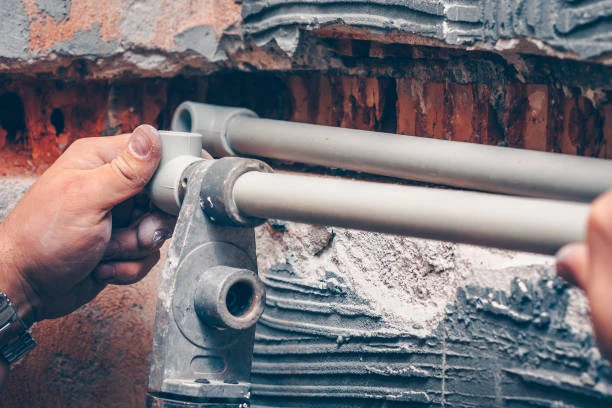Introduction
When it comes to maintaining a healthy home or business environment, effective drainage systems play a crucial role. Among the various materials used for drainage, Polypropylene Random Copolymer (PPR) pipes stand out for their durability and resistance to corrosion. However, like any system, they are prone to clogging if not properly maintained. Let’s dive into how you can avoid clogs in your PPR Pipe drainage systems by talking to the experts.
Understanding PPR Pipe
What are PPR Pipes?
PPR pipes are a type of thermoplastic piping known for their lightweight, flexibility, and durability. They are commonly used in hot and cold water systems, and increasingly in drainage applications due to their resistance to chemicals and low thermal conductivity.
Advantages of Using PPR for Drainage
PPR pipes offer several advantages over traditional materials like PVC or metal. They are resistant to corrosion, have a smooth inner surface that minimizes friction, and can withstand high temperatures. This makes them ideal for a wide range of drainage applications.
Common Causes of Clogging in PPR Systems
Debris Accumulation
One of the most frequent causes of clogging is the accumulation of debris, such as hair, grease, or food particles. These materials can build up over time, leading to blockages that slow or stop drainage.
Improper Installation
Poor installation practices can also lead to clogs. For instance, incorrect angles or unsupported pipes can create pockets where debris collects, increasing the likelihood of a blockage.
Chemical Reactions
Certain chemicals can react with the materials in the drainage system, leading to corrosion or buildup that can cause clogs. It’s essential to be aware of what substances are being disposed of in the drainage system.
Signs of a Clogged Drainage System
Recognizing the early signs of a clog can save you a lot of trouble down the line. Here are a few indicators:
Slow Drainage
If water is draining slowly from sinks, showers, or toilets, it’s a clear sign that something is amiss in your drainage system.
Unpleasant Odors
Foul smells emanating from drains can indicate decomposing organic matter stuck in the pipes.
Gurgling Sounds
If you hear gurgling noises when water is draining, it often means that air is trapped in the system due to a blockage.
Best Practices to Prevent Clogging
Regular Maintenance Tips
To keep your PPR drainage systems running smoothly, consider these maintenance practices:
- Routine Inspections: Regularly check for signs of wear and tear or buildup.
- Flushing: Periodically flush your drains with hot water to help dislodge any debris.
Recommended Cleaning Techniques
Using a mixture of baking soda and vinegar can be an effective way to clean your pipes naturally. Alternatively, commercial drain cleaners specifically designed for PPR pipes can help but should be used with caution.
The Role of Filters and Traps
Types of Filters for PPR Systems
Installing filters can significantly reduce the amount of debris entering your drainage system. Options include mesh filters for sinks and shower drains that catch hair and other particles.
Importance of Traps in Preventing Clogs
Traps are essential components of drainage systems that capture debris while allowing wastewater to flow through. Ensuring that these are installed correctly can help prevent clogs.
Expert Tips for Installation
Key Considerations During Installation
When installing PPR pipes, make sure to:
- Use the right fittings and connectors.
- Follow the manufacturer’s guidelines for angles and supports.
Common Pitfalls to Avoid
Avoid cutting corners with shortcuts in installation, such as insufficient slope or inadequate supports, which can lead to future clogs.

Choosing the Right PPR Products
Quality Standards to Look For
Not all PPR products are created equal. Look for pipes that meet international quality standards and certifications to ensure durability and reliability.
Comparing Brands and Their Offerings
Research various brands to find one that has a good reputation for quality and customer service. Read reviews and consult with experts to make informed choices.
Troubleshooting Clogs
DIY Methods for Clearing Clogs
If you encounter a clog, try using a plunger or a plumber’s snake before calling a professional. These tools can often dislodge blockages without causing damage to your pipes.
When to Call a Professional
If the clog persists despite your efforts, it’s time to consult a plumbing expert. They have the tools and experience necessary to diagnose and resolve complex issues.
Advanced Solutions
Hydro Jetting
For stubborn clogs, hydro jetting can be an effective method. This technique uses high-pressure water jets to clear out blockages and clean the pipes thoroughly.
Chemical Treatments
While chemical treatments can be effective, they should be used sparingly and with caution to avoid damaging your PPR pipes.
Environmental Impact of Clogged Drains
Effects on Local Ecosystems
Clogged drains can lead to overflow and contamination of local waterways, posing a threat to wildlife and ecosystems.
Health Hazards Associated with Clogging
Blocked drainage systems can create unsanitary conditions, leading to health risks for you and your family.
Conclusion
Maintaining a clog-free PPR Pipe drainage system is not just about convenience; it’s essential for the health of your home and the environment. By following expert advice and practicing regular maintenance, you can ensure your drainage systems function effectively for years to come.
FAQs
- What are PPR pipes commonly used for?
PPR pipes are used for plumbing, heating systems, and drainage applications due to their durability and resistance to corrosion. - How often should I maintain my drainage system?
Regular inspections every few months and thorough cleanings at least once a year are recommended. - What should I do if I notice a clog?
Try using a plunger or snake to dislodge the clog. If it persists, consult a plumbing professional. - Are there specific cleaning products recommended for PPR Pipe?
Natural solutions like baking soda and vinegar are safe, but there are also specialized cleaners available for PPR. - How can I find a reliable plumbing expert?
Look for local plumbing companies with good reviews and ask for recommendations from friends or family.